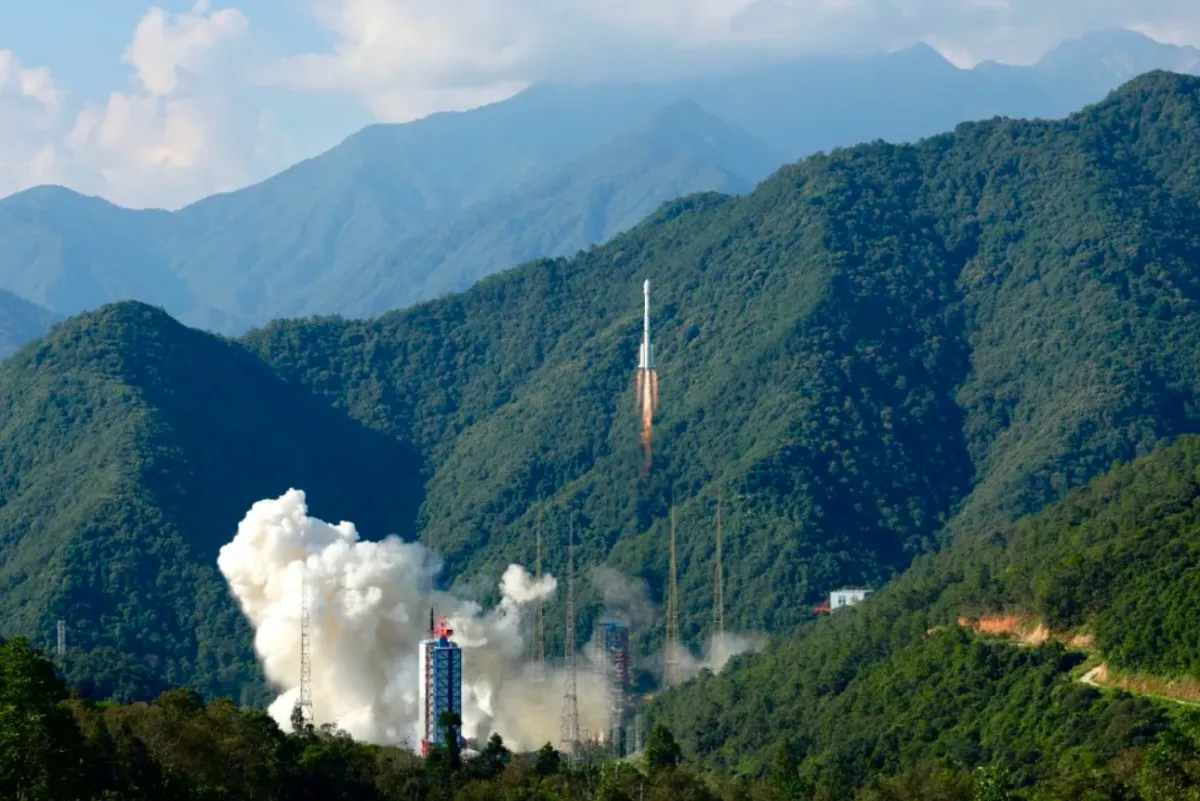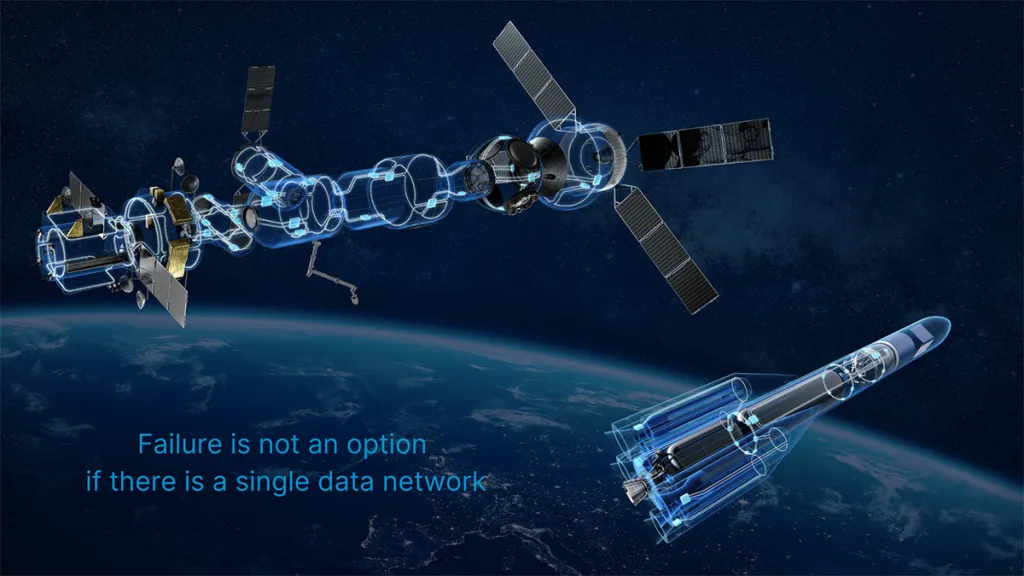Welcome to our weekly roundup of the top SpaceNews stories of the week, brought to you every Friday! This week, Blue Origin launched a new model of the New Shepard for the first time, Boeing announced a greater financial hit on Starliner, Crew-8 splashes down, and more. | | |
|
|
|
By Jeff Foust, Oct. 24, 2024 |
|
|
|
Blue Origin carried out the first flight of a new model of its New Shepard suborbital vehicle Oct. 23, a mission the company called "nominal and on target" despite going to a slightly lower altitude than past flights.
The uncrewed NS-27 mission lifted off from Blue Origin's Launch Site One in West Texas at 11:26 a.m. Eastern. The company had scrubbed an initial launch attempt Oct. 7 for unspecified technical issues that could not be resolved before the launch window closed, and Blue Origin called off a second attempt Oct. 13 "to troubleshoot a GPS issue." Read More |
|
| | |
|
NASA delays decision on Chandra and Hubble cuts
At an online town hall session Oct. 23, Mark Clampin, director of NASA's astrophysics division, said the agency was holding off on any changes in the operations of the Chandra X-Ray Observatory and Hubble Space Telescope while awaiting Congress to finalize appropriations for the fiscal year that started Oct. 1. Read More
Crew-8 returns to Earth
The Crew Dragon spacecraft Endeavour splashed down in the Gulf of Mexico off the coast from Pensacola, Florida, at 3:29 a.m. Eastern. The spacecraft had undocked from the ISS at 5:05 p.m. Eastern Oct. 23. The splashdown marked the end of the Crew-8 mission, returning NASA astronauts Matthew Dominick, Michael Barratt and Jeanette Epps and Roscosmos cosmonaut Alexander Grebenkin. The four spent 235 days in space, 232 of them on the station. Read More | | |  | LMV is Lockheed Martin's Venture Capital arm, and about a third of its portfolio is invested in space. Some of its most notable space Investments include launchers Rocket Lab and ABL Space. | | |
|
|
|
| | Boeing losses on Starliner increase by $250 million Boeing is taking another charge against earnings of $250 million on its CST-100 Starliner commercial crew program as the company's new leader vowed it will not walk away from troubled programs like it. In a filing with the U.S. Securities and Exchange Commission Oct. 23, Boeing disclosed it took the charge in its fiscal third quarter "primarily to reflect schedule delays and higher testing and certification costs." This is in addition to a $125 million loss the company recorded in the second quarter. Read More
The contract, announced Oct. 23, marks the second major deal for Millennium Space in this program, following a $509 million agreement in December for an identical set of six satellites. The California-based company will produce a total of 12 satellites to operate in medium Earth orbit (MEO). Read More
Space Force awards Northrop Grumman $1.8 billion contract extension for missile warning satellites
These satellites are part of the military's Next-Generation Overhead Persistent Infrared (OPIR) program, a defense initiative aimed at enhancing missile threat detection from space. This latest contract modification, announced Oct. 23, brings Northrop Grumman's total value for the project to $4.1 billion, following a $2.3 billion contract awarded in 2020 to develop the two satellites. Read More | | |
|
|
|
| | Applying AI to satellite manufacturing
Multiple companies are proceeding cautiously in applying artificial intelligence to satellite manufacturing, exploring the possible benefits of automation while managing concerns about reliability and cybersecurity. Read More
Aptos Orbital unveils device for onboard processing, communications and cloud services
Satellites communications terminals usually are distinct from radiation-hardened processors for AI applications. In contrast, Aptos "integrates space-hardened compute, persistent communication, and cloud services, all into one small device that's offered with a simple subscription service," the company told SpaceNews. "This holistic approach is both the highest performance and the most practical solution for satellite operators, saving satellite operators years of integration and validation." Read More
Proteus and SAIC form strategic partnership
Through the partnership, the companies will work together to enhance Mercury, Proteus' AI-based platform meant to "autonomously designs custom satellite buses tailored to specific payloads," according to a company news release. Los Angeles-based Proteus is automating the satellite design process to reduce time and cost, provide flexibility, ensure precision and accuracy, and minimize errors, the release said. Read More | | |
|
|
|
| | OPINION |
|  | By Dana A. Goward, Oct. 24, 2024
| Broad adoption of GPS signals over the last 40 years for use in everything from weapons systems to electrical grids and industrial controls have made them prime targets in conflict zones. By preventing reception (jamming) or sending false GPS signals (spoofing), belligerents can degrade or disable munitions, redirect drones and missiles and degrade IT systems and other infrastructure.
Unlike many of its adversaries, the United States has made few preparations for such attacks on its homeland and infrastructure, despite mishaps at home that have disrupted air traffic control systems and regular press reports of American weapons systems degraded by jamming and spoofing overseas.
Open conflicts in Ukraine, the Middle East, Kashmir and Myanmar demonstrate the utility of this kind of cyber and electronic warfare every day. Vladimir Putin's regular GPS jamming and spoofing in the Baltic also shows its usefulness as a tool for discrediting the systems and institutions of one's opponents in a form of low-level, hybrid, non-kinetic warfare. These should be daily reminders of the peril of the U.S.'s inaction. Read More
Winning hearts and minds to further the global space economy By Rick Liebling
The economic case for a Space Critical Infrastructure model By Nick Reese
|
|
|
|
SpaceNews is committed to publishing our community's diverse perspectives. Whether you're an academic, executive, engineer or even just a concerned citizen of the cosmos, send your arguments and viewpoints to opinion@spacenews.com to be considered for publication online or in our next magazine. | | |
|
| Sponsored Post |  | | By TTTech
Space exploration is no longer a prerogative of national space agencies, it is becoming more commercialized, with U.S. and international companies working together on key programs like NASA Artemis, commercial space stations, and advances in space transportation (mainly to and from LEO). This new form of collaboration also poses new challenges when setting up data networks and avionics: Safety and security: Humans and precious payloads need to be protected during travel, but also during their stay in space. This requires reliable solutions, qualifiable to international standards to ensure compatibility and interoperability. Future-proofing systems: "Orbital assets" like the Lunar Gateway that operate in space for twenty or thirty years need to not only be reliable, but also ready for expansion or modification, i.e. modular and scalable. System upgradability needs to be ensured by providing enough bandwidth in the network to add functionalities or seamlessly integrate new systems. TTTech Aerospace has been working on safe, reliable embedded networking and computing platform solutions for more than 25 years, leveraging its cross-industry technology expertise. This provides the basis for a space product portfolio that can meet the needs of current and future space programs says Bob Richards, Vice President Space at TTTech North America. Read More
| | |
|
| | | | |
|
|
No comments:
Post a Comment